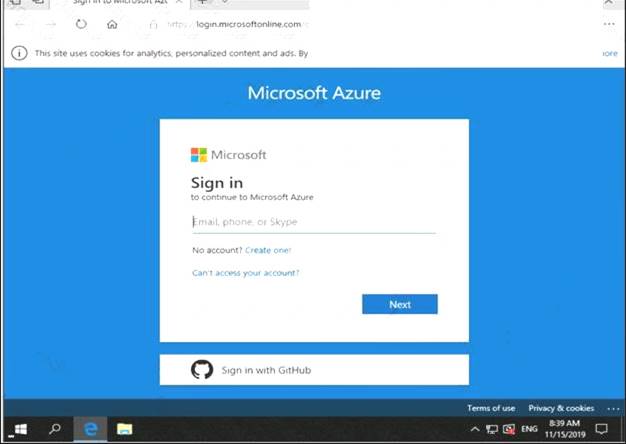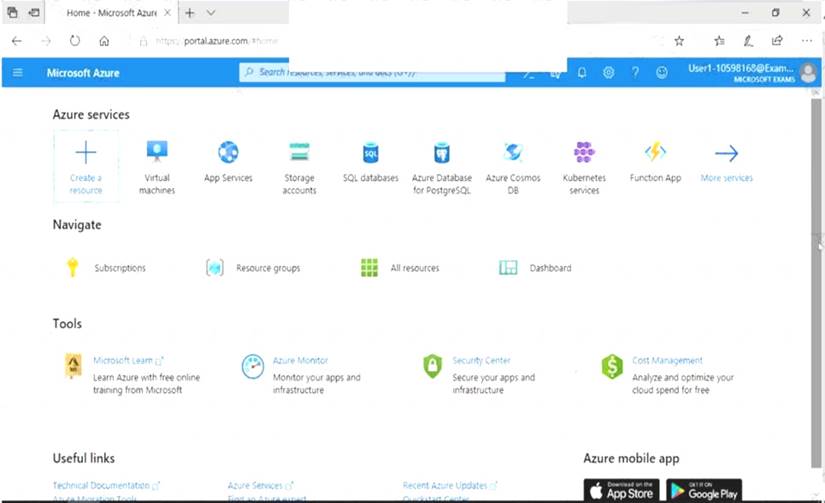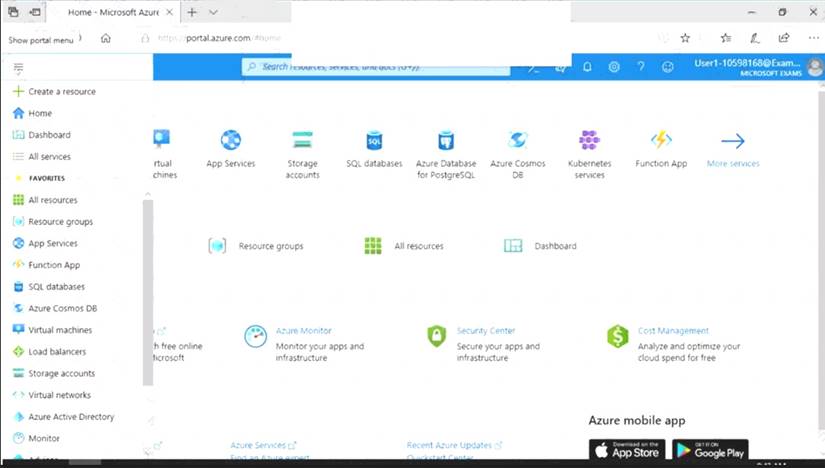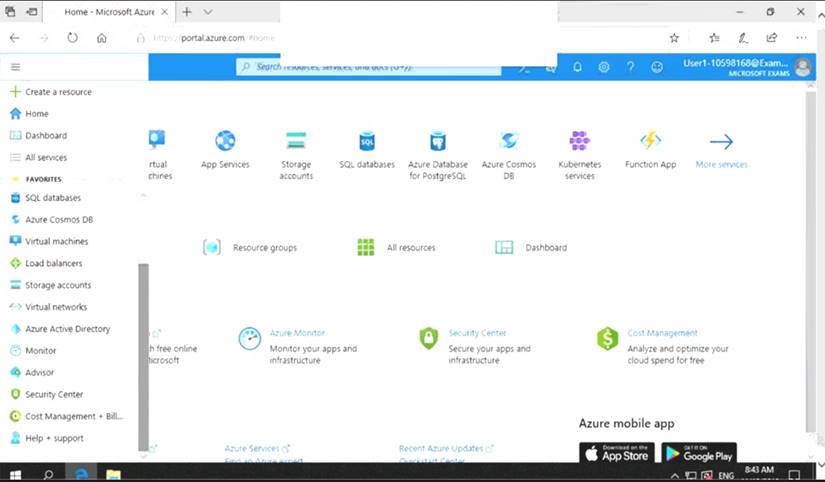- (Exam Topic 4)
You are configuring and securing a network environment.
You deploy an Azure virtual machine named VM1 that is configured to analyze network traffic. You need to ensure that all network traffic is routed through VM1.
What should you configure?
Correct Answer:
C
Although the use of system routes facilitates traffic automatically for your deployment, there are cases in which you want to control the routing of packets through a virtual appliance. You can do so by creating user defined routes that specify the next hop for packets flowing to a specific subnet to go to your virtual appliance instead, and enabling IP forwarding for the VM running as the virtual appliance.
Note: User Defined Routes
For most environments you will only need the system routes already defined by Azure. However, you may need to create a route table and add one or more routes in specific cases, such as: Force tunneling to the Internet via your on-premises network.
Force tunneling to the Internet via your on-premises network.  Use of virtual appliances in your Azure environment.
Use of virtual appliances in your Azure environment. In the scenarios above, you will have to create a route table and add user defined routes to it.
In the scenarios above, you will have to create a route table and add user defined routes to it.
Reference:
https://github.com/uglide/azure-content/blob/master/articles/virtual-network/virtual-networks-udr-overview.md
- (Exam Topic 4)
You have an Azure subscription that contains the custom roles shown in the following table.
In the Azure portal, you plan to create new custom roles by cloning existing roles. The new roles will be configured as shown in the following table.
Which roles can you clone to create each new role? To answer, select the appropriate options in the answer area.
NOTE: Each correct selection is worth one point.
Solution:
Graphical user interface, text, application, email Description automatically generated
Reference:
https://docs.microsoft.com/en-us/azure/active-directory/roles/custom-create https://docs.microsoft.com/en-us/azure/role-based-access-control/custom-roles-portal
Does this meet the goal?
Correct Answer:
A
- (Exam Topic 4)
Use the following login credentials as needed:
To enter your username, place your cursor in the Sign in box and click on the username below.
To enter your password, place your cursor in the Enter password box and click on the password below. Azure Username: User1-10598168@ExamUsers.com
Azure Password: Ag1Bh9!#Bd
The following information is for technical support purposes only: Lab Instance: 10598168



You need to create a new Azure Active Directory (Azure AD) directory named 10598168.onmicrosoft.com. The new directory must contain a user named user1@10598168.onmicrosoft.com who is configured to sign in by using Azure Multi-Factor Authentication (MFA).
To complete this task, sign in to the Azure portal.
Solution:
Step 1: Create an Azure Active Directory tenant
* 1. Browse to the Azure portal and sign in with an account that has an Azure subscription.
* 2. Select the plus icon (+) and search for Azure Active Directory.
* 3. Select Azure Active Directory in the search results.
* 4. Select Create.
* 5. Provide an Organization name and an Initial domain name (10598168). Then select Create. Your directory is created.
* 6. After directory creation is complete, select the information box to manage your new directory.Next, you're going to add tenant users.
Step 2: Create an Azure Active Directory tenant user
* 7. In the Azure portal, make sure you are on the Azure Active Directory fly out.
* 8. Under Manage, select Users.
* 9. Select All users and then select + New user.
* 10. Provide a Name and User name (user1) for the regular user tenant You can also show the temporary password. When you're done, select Create.
Name: user1
User name: user1@10598168.onmicrosoft.com
Reference:
https://docs.microsoft.com/en-us/power-bi/developer/create-an-azure-active-directory-tenant
Does this meet the goal?
Correct Answer:
A
- (Exam Topic 4)
You have an Azure subscription named Sub1 that is associated to an Azure Active Directory (Azure AD) tenant named contoso.com.
You plan to implement an application that will consist of the resources shown in the following table.
Users will authenticate by using their Azure AD user account and access the Cosmos DB account by using resource tokens.
You need to identify which tasks will be implemented in CosmosDB1 and WebApp1.
Which task should you identify for each resource? To answer, select the appropriate options in the answer area.
NOTE: Each correct selection is worth one point.
Solution:
CosmosDB1: Create database users and generate resource tokens.
Azure Cosmos DB resource tokens provide a safe mechanism for allowing clients to read, write, and delete specific resources in an Azure Cosmos DB account according to the granted permissions.
WebApp1: Authenticate Azure AD users and relay resource tokens
A typical approach to requesting, generating, and delivering resource tokens to a mobile application is to use a resource token broker. The following diagram shows a high-level overview of how the sample application uses a resource token broker to manage access to the document database data:
References:
https://docs.microsoft.com/en-us/xamarin/xamarin-forms/data-cloud/cosmosdb/authentication
Does this meet the goal?
Correct Answer:
A
- (Exam Topic 4)
You have an Azure Subscription that is linked to an Azure Active Directory (Azure AD). The tenant contains the users shown in the following table.
You have an Azure key vault named Vault1 that has Purge protection set to Disabled. Vault1 contains the access policies shown in the following table.
You create role assignments for Vault1 as shown in the following table.
For each of the following statements, Yes if the statement is true, Otherwise, select No. NOTE: Each correct selection is worth one point.
Solution:
Does this meet the goal?
Correct Answer:
A

